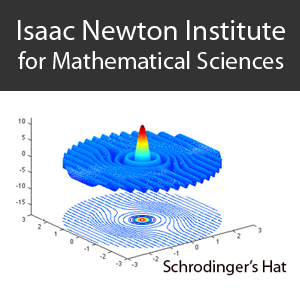Bayesian preconditioning for truncated Krylov subspace regularization with an application to Magnetoencephalography (MEG)
Duration: 58 mins 47 secs
Share this media item:
Embed this media item:
Embed this media item:
About this item

| Description: |
Somersalo, E (Case Western Reserve University)
Tuesday 11 February 2014, 11:00-11:45 |
|---|
| Created: | 2014-02-27 17:44 |
|---|---|
| Collection: | Inverse Problems |
| Publisher: | Isaac Newton Institute |
| Copyright: | Somersalo, E |
| Language: | eng (English) |
| Abstract: | Co-authors: Daniela Calvetti (Case Western Reserve University), Laura Homa (Case Western Reserve University)
We consider the computational problem arising in magnetoencephalography (MEG), where the goal is to estimate the electric activity within the brain non-invasively from extra-cranial measurements of the magnetic field components. The problem is severely ill-posed due to the intrinsic non-uniqueness of the solution, and suffer further from the challenges of starting from a weak data signal, its high dimensionality and complexity of the noise, part of which is due to the brain itself. We propose a new algorithm that is based on truncated conjugate gradient algorithm for least squares (CGLS) with statistically inspired left and right preconditioners. We demonstrate that by carefully accounting for the spatiotemporal statistical structure of the brain noise, and by adopting a suitable prior within the Bayesian framework, we can design a robust and efficient method for the numerical solution of the MEG inverse problem which can improve the spatial and temporal resolution of events of short duration. |
|---|---|
Available Formats
| Format | Quality | Bitrate | Size | |||
|---|---|---|---|---|---|---|
| MPEG-4 Video | 640x360 | 1.94 Mbits/sec | 855.45 MB | View | Download | |
| WebM | 640x360 | 630.36 kbits/sec | 271.47 MB | View | Download | |
| iPod Video | 480x270 | 521.15 kbits/sec | 224.38 MB | View | Download | |
| MP3 | 44100 Hz | 249.76 kbits/sec | 107.65 MB | Listen | Download | |
| Auto * | (Allows browser to choose a format it supports) | |||||

